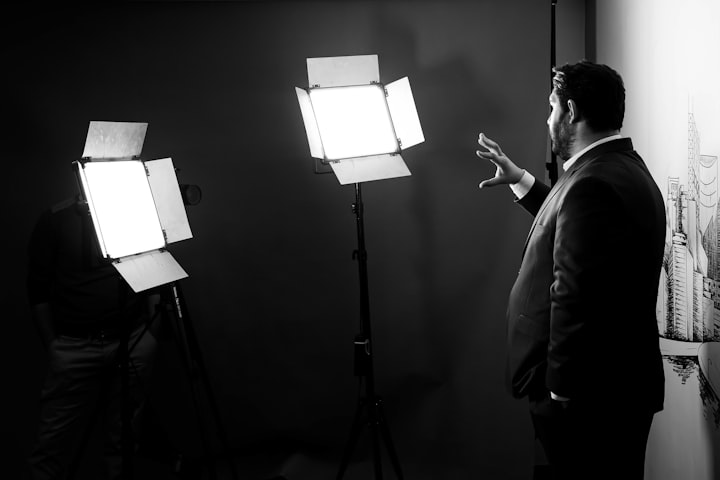
When it comes to my adventures with Borderline Personality Disorder (BPD), one of the biggest things I struggle with is the poor impulse control and self-destructive behaviour.
There are a few forms of self destructing behaviour; eating disorders, alcohol abuse, drug addictions, sex addiction, self-injury, and suicide attempts are the more obvious ones. A successful individual may self-destructively sabotage their own achievements; or self-destructive behavior may also manifest itself in an active attempt to drive away other people.
Put simply, this means that rather than deal with this fear, socially self-destructive individuals engage in annoying or alienating behavior, so that others will reject them first—which is very much my case.
Even though I self destruct in other ways (in the past it was self harm and addictions) it is my most common way of self-destructing. But the BPD part of my brain justifies the pushing of people away as a way of self preservation. Sure, sometimes it is self-destructive and the action causes more pain or problems but what if in some cases you need to self-destruct to self-preserve and help yourself?
This past weekend I went on a binge of destruction and bridge burning.
Like most of my binges I didn’t really see it coming but I knew it was about time for one (you would think I would be more prepared, or be able to stop it).
I see the "ability" to cut people out before they cut me out as being in control of the relationship. Since my brain feels it has been wronged, or left too many times already I try to avoid that situation and someone leaving me, in every way.
Instead of not being ready when that person is going to leave (because borderline often tricks you into thinking someone will leave or lose interest in you), I will do it when I am ready and already hurting.
There is also a sense of get it all done with at once and deal with it. Instead of dragging it out or it messing up a "good" day. The control of when it happens instead of being blindsided seems to ease a lot of anxiety.
The self destructive actions always have a build up and tipping point to them (for me, anyway). I will be good for a while and manage to keep myself in check and stick to the tips for dealing with self-destructive behaviour (see below) but then there will be a tipping point.
Right now my biggest trigger is social media. It seems to highlight the places I feel I’ve failed in my life or highlights the dreams I did have that now are not achievable.
This past weekend I was already worked up relationship wise. I had went on separate self-destructive path and was navigating that one and almost through it when I decided to I revisit the page of a long time, estranged friend.
This friend is someone that the BPD side of my brain feels has "wronged" me. I slapped a passive aggressive message on her wall, highlighting how she had ditched me. It was short, not so sweet, but very to the point. I felt a brief flash of success and calm. I had spoken my mind, my sudden leaving her life would not go unnoticed now, I had her attention and she was about to be out of my life.
That’s everything the self destructive and impulsive mind wants! I felt huge relief as I clicked that "deactivate" button. I knew my friends were mad at me so that was causing anxiety but otherwise I felt a bit freer.
The last few weeks of surfing my dashboard and seeing all the activities I was left out on, the invites I didn’t get and the things I wasn’t accomplishing were all gone. I wasn't enjoying things or valuing things the way I should be. The way others say I should be.
I was raging more over nothing and I was beginning to think it all would have a negative impact on the people around me that I hadn't pushed away (yet?).
Now its all gone. Out of sight, out of mind.
Is it a bad thing to start new with new friends and new interests and focus on what you have in front of you.
There WAS that year I went cell-phone and social media free, which itself was an interesting social experiment (in the days of social media not many people notice when you’re not around).
I’m not sure at this point if it’s an irrational, self-destructive BPD moment or if this will actually be a help.
Part of me is sure that I will only to go crawling back into the cycle but I hope I can stick with it this time. Because maybe this self-destructive action of a social media blackout and burning bridges will end up being better for me mentally.
Instead of focusing on what others are doing or how they are doing—who they are doing it with. I can tear myself away from my phone and other screens and spend time with my son or partner.
There was that year I went cell-phone and social media free, which itself was an interesting social experiment (in the days of social media not many people notice when you’re not around). I just can't remember if I was happier or not back then. It was a different part of my life.
Regardless of how my social media blackout goes or if it ends up being the right thing for my mental health I did realize that I managed to avoid using any coping mechanism for self-destructive behaviour or impulsive thoughts I may have learned during my BPD adventure.
As I recover and repair this week, I figured it was a good time to revisit some the most common advice for dealing with self-destructive behaviour (and ones I’m still learning to utilize):
- Don’t believe the negative self-talk. Hear and acknowledge the self talk but don’t listen to them. Instead come up with counter, more positive based thoughts.If your brain says: I can’t do this... Counter with: Actually, I can and have. Other people have done this and so can I and I’ll only know if I try.
- Prepare ahead of time—recognize your triggers and stressors. Becoming aware of what triggers unhealthy habits can help you forestall engaging in them. If you find yourself triggered or unable to avoid the moment, stay mindful of your thoughts, feelings and attitudes and try out your coping strategies. If it fails, that’s okay, use your failure to learn what you might do differently next time. Failure isn’t a bad thing—it’s new information to improve your habit method.
- Check your assumptions. When you’re derailed by stress and negativity, as people with borderline personality disorder often are, it’s easy to misread the intentions of others. If you’re aware of this tendency, you can check your assumptions. Remember, you’re not a mind reader! Instead of jumping to conclusions (usually negative), consider alternative meaning and motivations.For example, let’s say your partner was abrupt with you on the phone and you’re feeling insecure and afraid they’ve lost interest in you.Stop to consider alternative explanations. Maybe your partner is under pressure at work. Maybe he’s having a stressful day. Maybe he hasn’t had his coffee yet. There are many different possibilities.Ask the person to clarify their intentions. One of the simplest ways to check your assumptions is to ask the other person what they’re thinking or feeling. Double check what they meant by their words or actions. Instead of asking in an accusatory manner, try a softer approach: “I could be wrong, but it feels like...” or “maybe I’m being overly sensitive, but I get the sense that...”
- Find support. Your partner or good friend, or family or the Internet can all be a crucial support system for you. Ask them to check on you and help you succeed. If you don’t have anyone supportive around you, find a group online.
About the Creator
C.A. M
A parent, writer and coffee drinker with Borderline Personality Disorder navigating life.






Comments
There are no comments for this story
Be the first to respond and start the conversation.